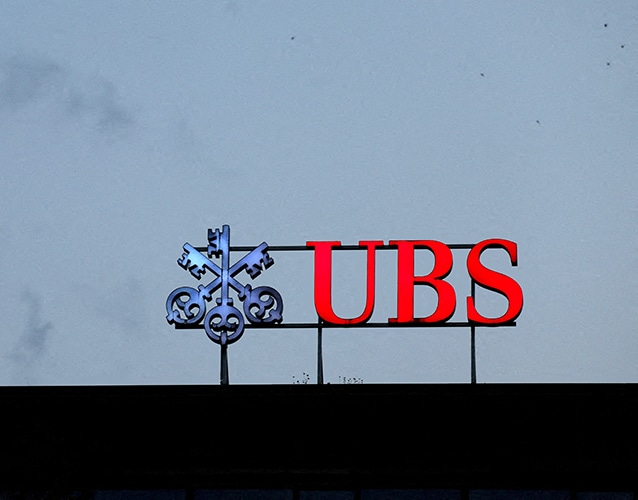UBS has flagged the downturn in commercial real estate markets as one of the “top and emerging risks” facing the Swiss bank, as higher borrowing costs and a post-pandemic slump in demand for office space hit the sector.
Commercial property markets in the United States and Europe are in the grip of the biggest slowdown since the 2008-9 crash.
“Adverse effects on valuations from higher interest rates and structural decline in demand for office and retail space may trigger broader impacts given bank and non-bank lenders’ material balance sheet exposure to the sector,” the bank said in its 2023 annual report published on Thursday, March 28.
UBS said its risk exposure to the sector across the group increased to $55.09 billion in 2023 from $47.1 billion in 2022, largely due to the acquisition of its rival Credit Suisse. Several other big European banks have larger loan exposures to commercial real estate, official data shows.
UBS defines “top and emerging risks” as those which have the potential to materialise within one year and could significantly affect the group. Other risks detailed on Thursday included inflation and geopolitics.
Commercial real estate did not feature among the top risks UBS flagged in its last annual report.
The bank did not give a breakdown to show its exposure to U.S. commercial real estate, a market which has particularly struggled.
Valuations have plummeted there, putting pressure on indebted developers and some regional U.S. banks as well as heavily exposed specialist German lenders.
Analysts have said that the hit to major banks globally of a further downturn should be manageable with a small impact on their earnings.
The International Monetary Fund said on Thursday that banks needed to be vigilant about real estate risks in Switzerland.
“The financial sector is resilient with strong buffers, but vulnerabilities from the real estate sector remain,” the IMF said after concluding its review of the Swiss economy.
In its annual report, UBS said that greater exposure to Swiss commercial real estate had also increased climate-related transition risks.
That was because Switzerland last year passed the Climate and Innovation Act, which is set to impact energy efficiency rules, the bank said.
Lenders are trying to reduce emissions linked to their property lending, a major source of carbon emissions.
Some European bank executives have called on governments to toughen up rules around decarbonising real estate, warning that without that they will struggle to hit climate targets.
UBS said on Thursday it was targeting a 45% reduction in emissions linked to its Swiss residential property book by 2030 and 48% for its commercial business.
This article was provided by Reuters.







